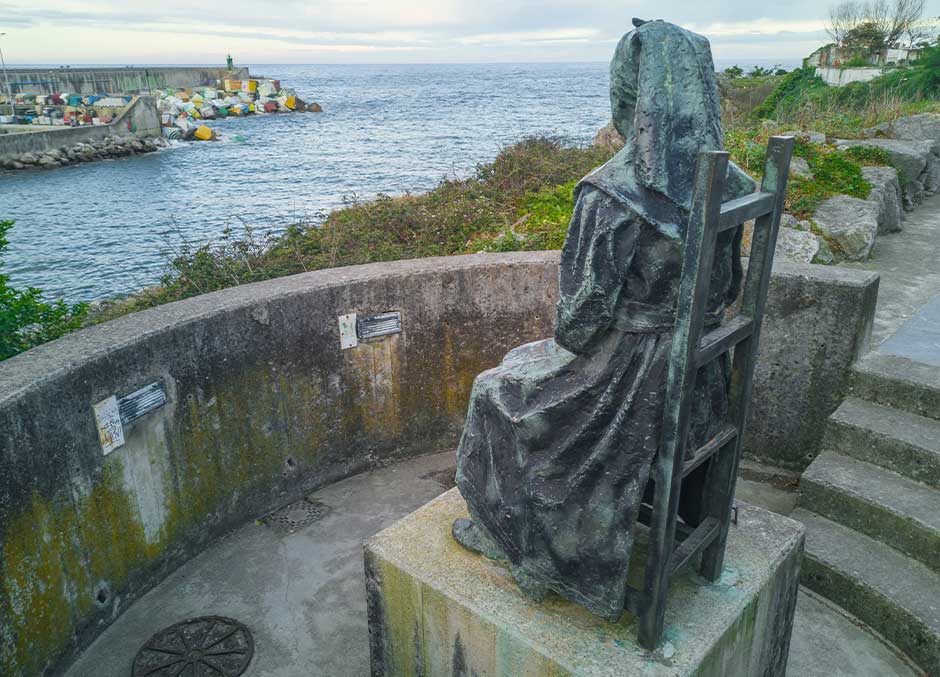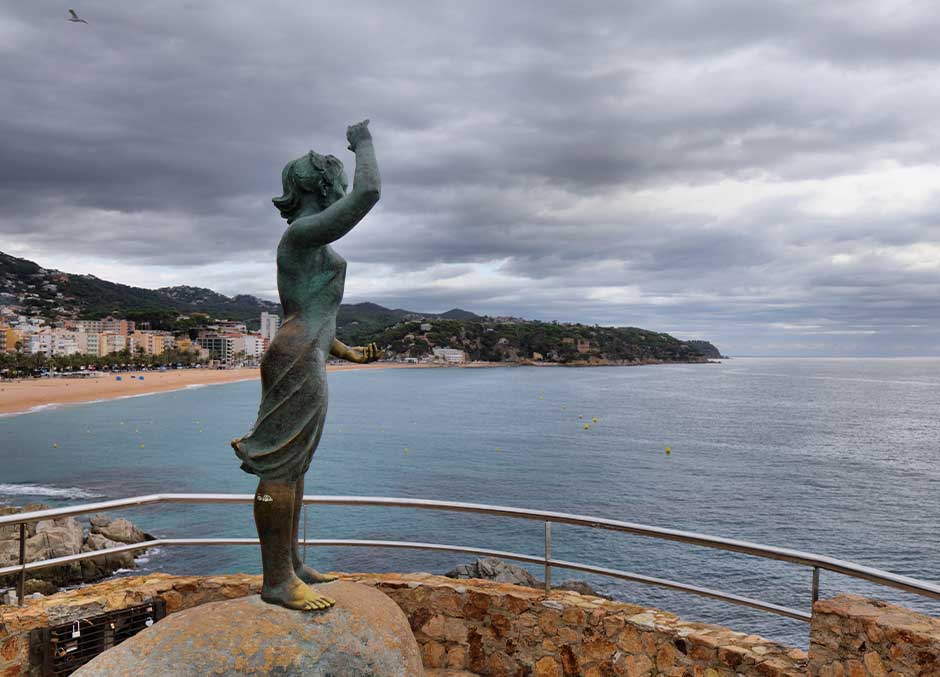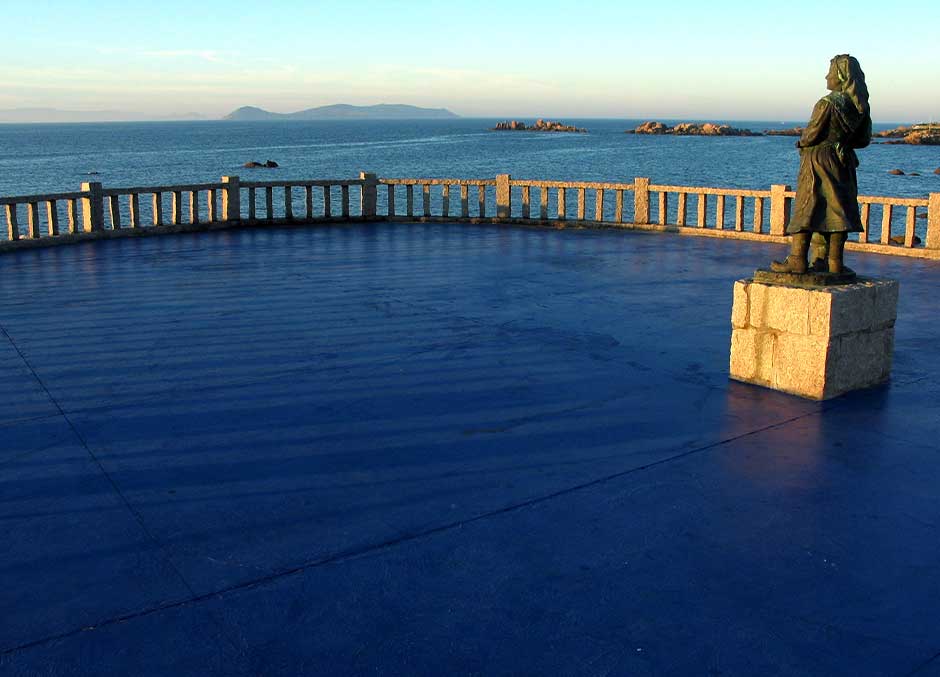
«Saltpetre is in our blood»
In the sea there are many trades that have traditionally been carried out by women. Ships, ports, docks and fish markets have been their place of work; the sea and the fish, their workmates; and the effort, the humidity and the water, their hard day-to-day work. Mothers, daughters… usually with a long fishing family tradition, who for generations have maintained trades that today are in danger of extinction.
They were and continue to be net menders, packers and neskatilas, but this may be the last generation of women who represent everything that is the sea. “I can’t see myself working in anything else that is not related to the scales because it is a way of life”, some say; “saltpetre is in our blood”, say others. They are ‘women of the sea’, but how have they evolved over the years? How do they see the future?
“We have been fighting for many years for recognition”, lament Jone and Begoña, packers. In fact, it was only five years ago that they managed to get a social security number, because it did not exist. “Some of us did the professional qualification and we have the professional certification. We almost got it when we are disappearing,” adds Ainhoa Vasco, president of the Basque Federation of Women of the Sea, with regret. The next step, which is expected to become official on 8 march, is to incorporate a reduction coefficient of at least 0.15 in the minimum age for receiving a pension, which would make it possible for these women to retire almost four years earlier than the ordinary retirement age.
«It has been quite a difficult world. Now, after a lot of fighting, we are being listened to, understood and attended to»
“It has been a very difficult world, very much a man’s world. Now, after a lot of fighting, things have changed. We are listened to, understood and attended to”, Ainhoa acknowledges. “Nobody can imagine the work we have and the work we have done, with years in which we have worked 20 hours a day. We knew when we left the house but not when we came in”, recall Jone and Begoña. That is why the future does not look very encouraging. “Nobody wants to do it and I wouldn’t want my daughter to go to the port either, because before you could get a salary a month, but not now”, added the two packers. “If I had a daughter, I wouldn’t want her to do this because it means committing herself to something that has no future”, adds the Neskatila.
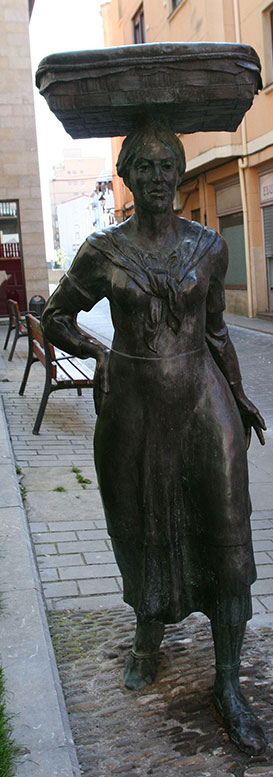
Ainhoa, neskatila: «There are fewer ships, so there will also be fewer neskatilas»
Their figure is not very common in most Spanish ports. However, in Bermeo, there are around twenty of these women (usually relatives of the sailors, wives, daughters or sisters) who are in charge of welcoming the boats when they arrive in port on a daily basis. Ainhoa, a fisherman’s wife and mother, has been a neskatila for decades (now with her children’s boat). “The boat fishes hake. They go out to sea every day at around 2 or 3 in the morning and return to port at around 5 in the afternoon. When they return I have to be at the port, we unload the fish, I make the note for them to send the electronic logbook and then we select the fish, that is, I put the hake (or conger eel) one by one in boxes in their size, I write down the lot and it is kept in the fridge of the brotherhood. The next morning I have to go down to the fishermen’s guild again to put the fish up for sale, to weigh the fish box by box and display it for them to buy. And in the afternoon I have to go down again because the boat comes back, and every day like that”, he explains.
Her figure goes hand in hand with the fishermen and, taking into account the difficult time that inshore fishing is going through (there are fewer and fewer boats, there is little generational change…) it is not difficult to realise that “there is no generational change because there is none in fishing either”, laments Ainhoa. “Things are getting worse in inshore fishing (they are becoming more and more restricted, the price of diesel is rising, quotas are increasing…). I see a very dark future because there are fewer and fewer boats, so there will also be fewer and fewer neskatilas and rederas, there is no work for everyone”.
To this must be added the fact that these are jobs where there is no fixed salary (for example, the rederas work by the hour and the neskatillas work on a part-time basis, i.e. based on what the boat earns, a part goes to them, so if the boat doesn’t catch fish, you don’t get paid). “I have been working in a factory, I would go to the port at 4 am and at 7 am I would start my day in the factory until 3 pm, but as I could not leave the boat, when the boat arrived I had to go and look after it”, recalls the neskatila. And yet, it is a trade that Ainhoa says she could not live without: “I can’t see myself working in anything else that is not related to the scales because it is a way of life”, she admits.
SDG 8
Promote sustained, inclusive and sustainable economic growth, full and productive employment and decent work for all
SDG 10
Reducing inequalities and ensuring that no one is left behind is integral to achieving the Sustainable Development Goals.
Jone and Begoña, packers: «Our job is to be lifting boxes weighing 30 or 40 kilos»
“We select the fish, weigh it, put it in batches… Many people think that it is an easy job where we sit down, but what we really do is lift boxes of 30 or 40 kilos”, they explain. Their day starts when they get the call that the ships are coming in. “The shipowners have a woman who calls the rest of us. So when they call us, we go down to the fish market and we select all the fish they bring in, weigh each box and place them in their lot – and if there are more varied fish, we classify them by kilos, size, colour… we weigh them again and they go to their lot”, they explain.
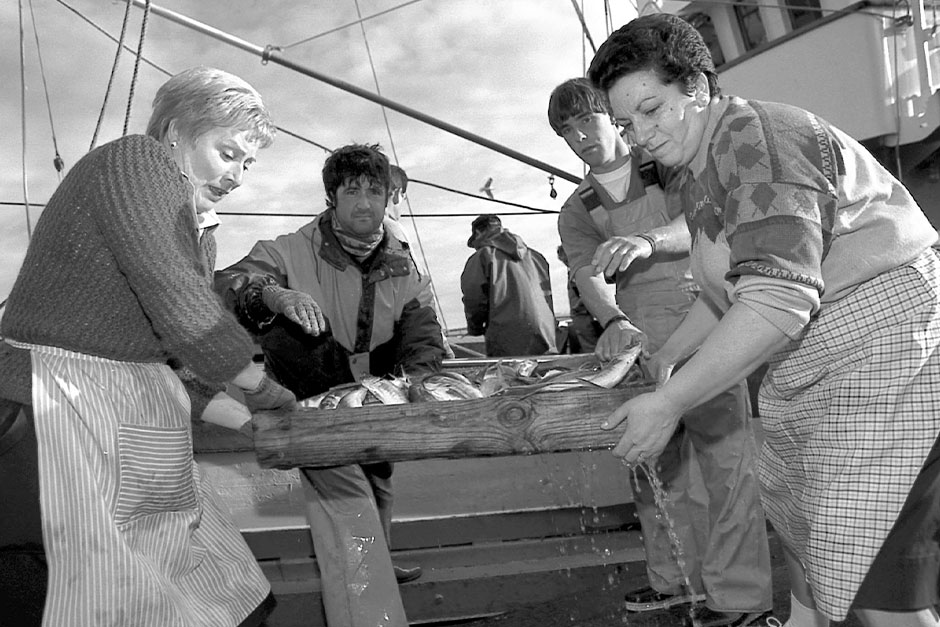
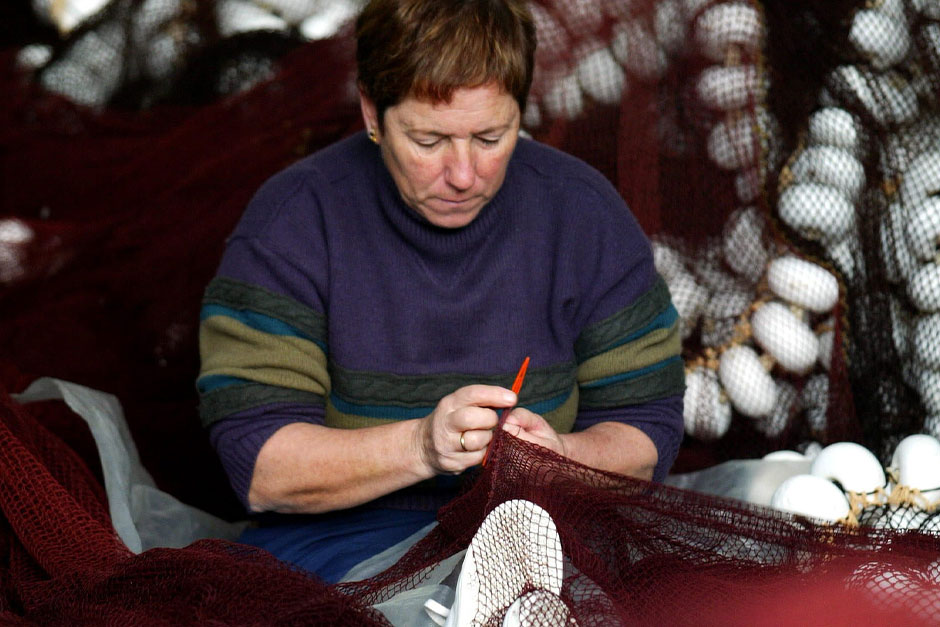
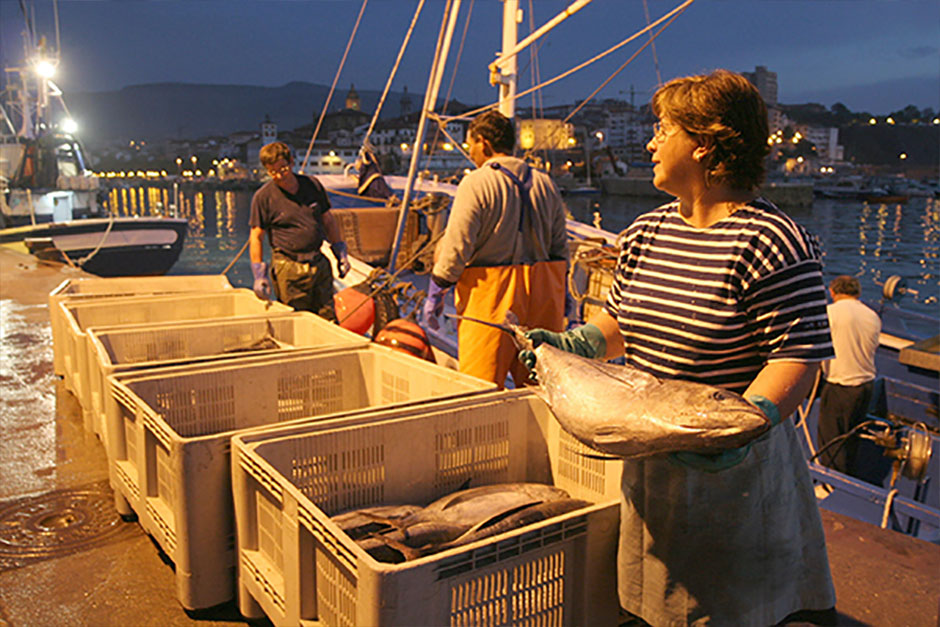
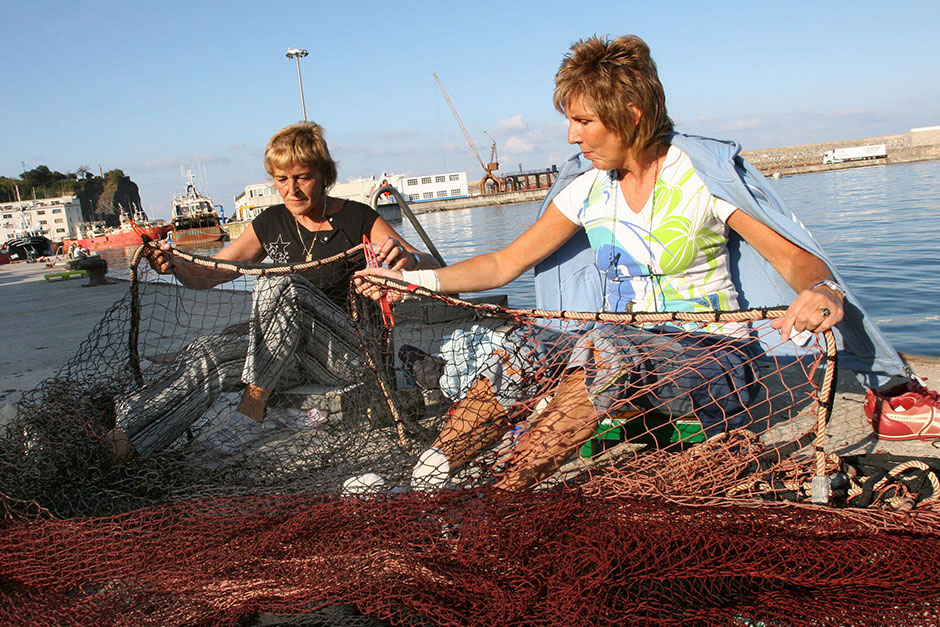
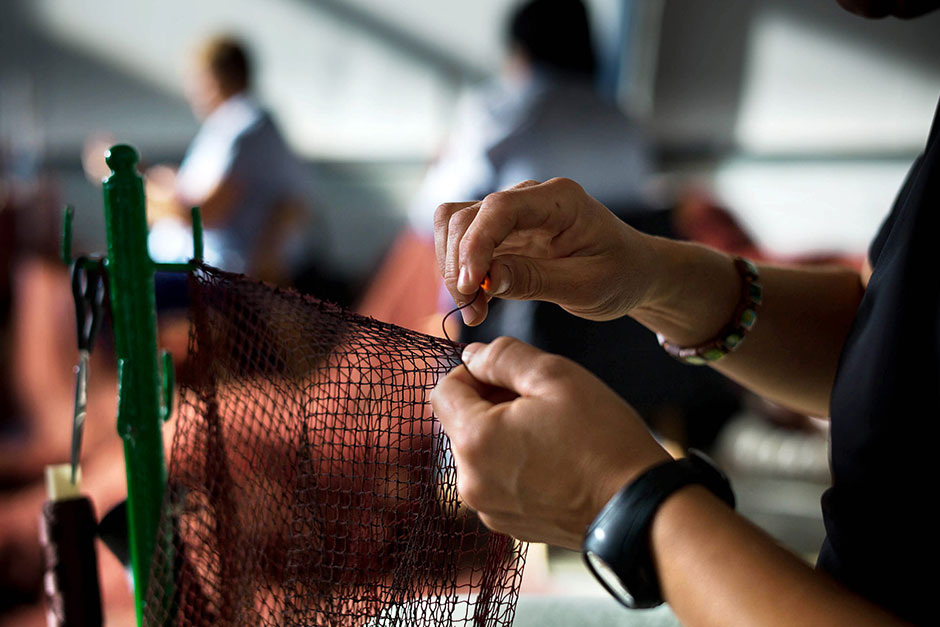
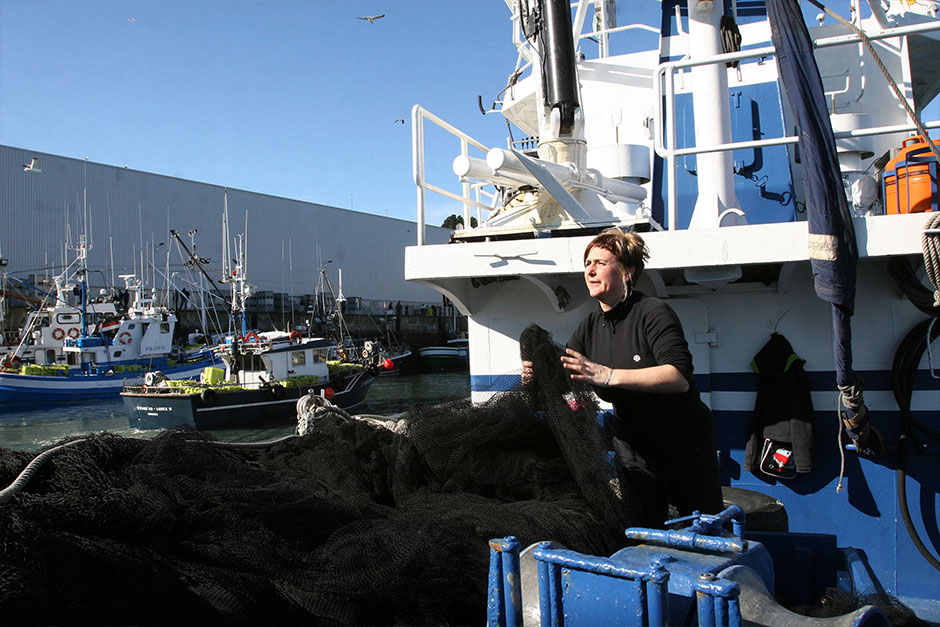
A job that sounds hard in itself, but which in the past was even harder: “Nowadays we work during the day, but in the old days we used to go down to the port at 7 pm and we didn’t get home until 7 am, from sunday to wednesday. Doing one boat, then another and another… Now there are hardly any boats, so each one has a company that calls them and we only work on sundays”. The amount of fish they work with has also changed. “When we started (more than 30 years ago) it was all big wooden boxes that weighed a lot more. Nowadays we work with smaller plastic boxes, although there are still some large ones, but very few”.
«Now we only work on Sundays, but we used to go down to the port from Sunday to Wednesday from 7pm to 7am»
And although it may sound like an ‘easier’ task than in the past, nothing could be further from the truth. “You have to take into account that now most of us are 53 years old or older, and this is a job in which we do a lot of work and in which we have been working for many years, so many of us already have bad bones, bad backs… A lot of ailments derived from the work that, nevertheless, are considered a common illness”.
And yet they could not live without the sea nearby. “Our fathers, brothers, husbands… are related to this world, we have never known anything else and we like our work. We have been doing it all our lives and saltpetre is in our blood”, they admit proudly.
«Imagine that everything you want comes out of the mouth of the breakwater and you don’t know what will happen»
But being a ‘woman of the sea’ does not only mean working in the port, the fish market or on the boats. A ‘woman of the sea’ is also a woman who waits at home when her father, husband, brothers or children go on campaign. “I have my husband and two sons at sea. A 26-year-old son and a 21-year-old son who are together on one ship, and my husband who is on another. Imagine that everything you have and want goes out through the mouth of the breakwater and you don’t know what is going to happen. I always say that there is no big ship at sea, that they are all nutshells. It is distressing, for example, when they go to the bonito and spend 20 days in the Azores, that every day they call you at 9 o’clock at night; but one day they don’t do it (maybe because at that moment they had work to do and they call you at 11 o’clock at night), but during those two hours it is incredible how your head can spin”, Ainhoa expresses with regret.



